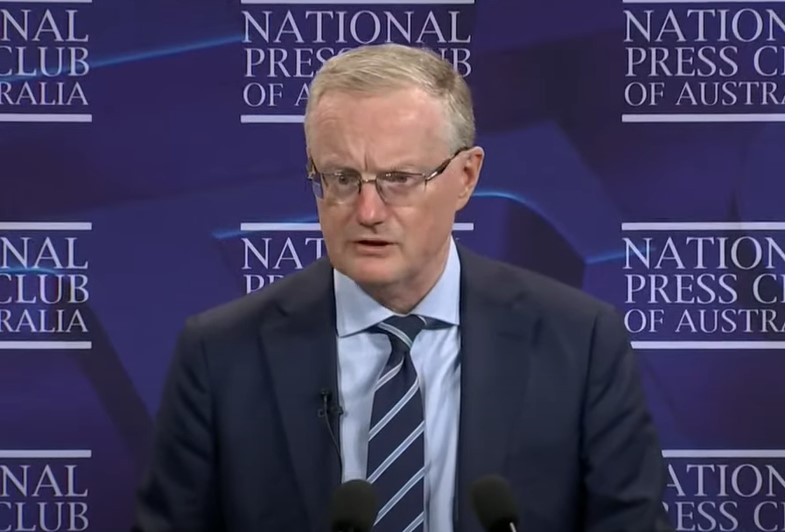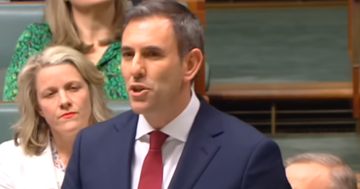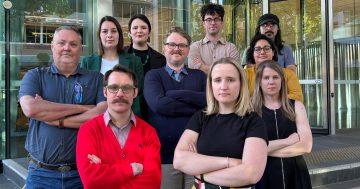
RBA Governor Philip Lowe: “It’s really important that we don’t develop a pattern here of wages and prices chasing one another.” Photo: Screenshot.
Reserve Bank Governor Philip Lowe has shot back at ambitious wage claims saying they could seriously impact inflation and interest rates.
Addressing the National Press Club on Wednesday (5 April), Dr Lowe insisted he wasn’t referring to any specific claim, but last month, Finance and Public Service Minister Katy Gallagher cited the current budgetary climate when she rejected the 20 per cent opening gambit from the Community and Public Sector Union.
“If we are going to have much higher aggregate wage growth, we’ll have higher inflation and we’ll have higher interest rates,” Dr Lowe said.
“It’s really important we don’t develop a pattern here where wages and prices chase one another.
“If they do, then inflation will become entrenched and we’ll have to have higher interest rates.”
He said over-ambitious wage bargaining claims by federal or state workforces risked an inflation spiral that could outpace productivity gains and aggregated rises over time would adversely influence the direction of rates.
During his address, Dr Lowe said a sustainable rate of wages growth was 2.5 per cent plus prevailing rates of productivity growth.
The Reserve Bank of Australia kept interest rates on hold at its most recent meeting following 10 consecutive rises in its bid to rein in inflation.
But the Governor warned there would likely be more cash rate hikes.
“I think it’s too early, way too early, to be talking about interest rate cuts and the balance of risk lies with further rate rises, but it will depend on the data. That’s the context that we think about it in.
“At the moment, wages growth is around 3.5 per cent. That’s perfectly OK, but countries that are experiencing 5 per cent aggregate wage growth, they have to have higher interest rates, so that’s the choice as a society we face.”
The CPSU is seeking an initial pay increase for APS staff of 9 per cent in the first year of the agreement, 6 per cent in the second year and 5 per cent in year three.
The union also wants a cost-of-living adjustment payment and a pay equity clause to improve the salaries of the service’s lowest-paid employees.
Senator Gallagher said it was out of the question.
“It would be impossible to deliver that in terms of the budget we are facing,” she said.
“But we do want reasonable, affordable pay rises … They are doing what they need to do on behalf of their members, I understand that. We’ve got a job to do too, which is to make sure the budget is sustainable.
“We are coming from different standpoints. Hopefully, we can meet in the middle.”
A four-day working week has also likely to be thrown on the bargaining table, with the CPSU insisting that flexibility is a central issue for APS employees.
The Australian Public Service Commission is anticipating that a four-day working week will be a bargaining point.
“We expect it to be tabled as a claim when we discuss flexible work arrangements,” an APSC spokesperson said.
“As we represent all APS agencies during APS-wide bargaining, we need to consider common conditions and their impact on an agency’s operational requirements.”




















